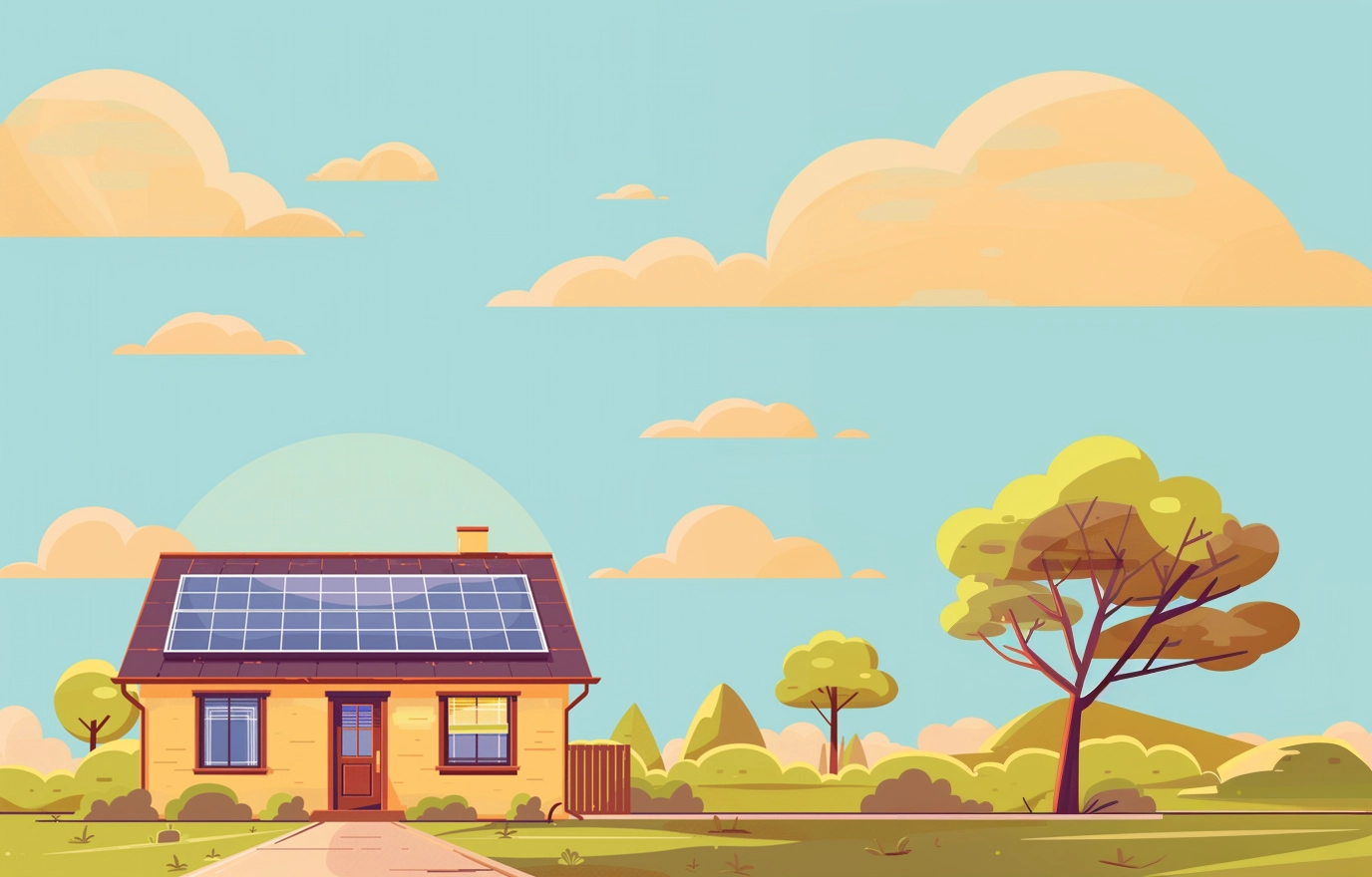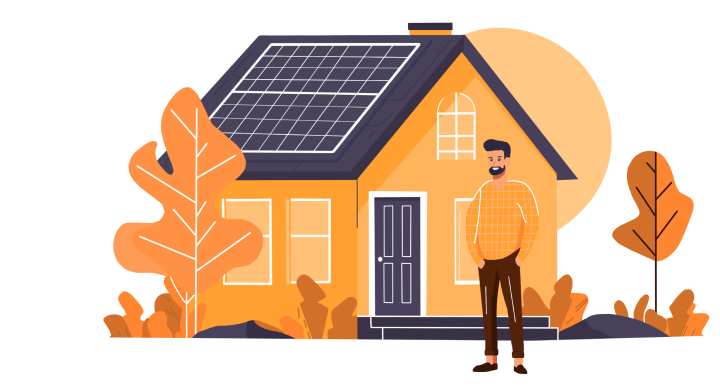Considering a roof solar installation? Choosing the right options and steps for finding tailored solar energy solutions can affect your home's energy efficiency and value. Solar Energy Host provides clear and simple advice to help you through the process.
In this guide, we'll cover important topics like checking if your roof is suitable for solar installation, picking the right residential solar panels, and understanding permits, solar system financing and tax benefits.
Whether you've dealt with solar before or are new to it, this will help you make informed decisions for a successful roof solar system installation.
Tip #1: Make sure your roof is compatible.
Certain roof types are better suited for roof solar installation because they provide a stable and durable surface. Flat roofs, for example, provide flexible options for panel placement. Sloped roofs, on the other hand, provide a natural angle for optimal sunlight exposure but may require specific types of mounting brackets.
Additionally, metal and tile roofs are known for their durability and can easily support the added weight of rooftop solar panels without compromising the roof's integrity.
The angle and orientation of your roof can also affect solar energy production. Roofs that tilt between 30 and 45 degrees usually get the most sunlight throughout the day, making them highly efficient for solar installation in home.
Geographic location also plays a role; for instance, south-facing roofs in the northern hemisphere generally receive the most sunlight. You should also check for any shadows cast by trees, buildings or other structures that could block sunlight and reduce panel efficiency.
Check with your provider about an ocular or on-site inspection.
Before you push for roof solar installation, you should consider having a professional inspect your roof to pinpoint any issues. This step helps you address any problems early on. Additionally, if you need specific guidance for your roof and the possible cost of solar energy for homes, consider contacting a provider through Solar Energy Host for personalized recommendations.
Tip #2: Choose the ideal solar panels for your home.
Solar panels have different efficiency ratings that show how effectively they can convert sunlight into electricity. The higher the efficiency rating of your solar power installation, the more electricity you get from the same amount of sunlight.
This is particularly important if your roof space is limited, as it allows you to get the most energy per square foot. Review and compare these ratings to determine solar panel efficiency and which panels best fit your energy needs and roof area.
The durability of the panels used is also crucial. In areas with harsh weather conditions like heavy snow or strong winds, selecting panels designed to endure these conditions can prevent long-term damage.
Ultimately, the right combination of size, durability and coverage will maximize the cost to install solar panels and your investment for a roof solar installation.
You have solar panel options for your budget.
Start by calculating your household's electricity use and comparing it with the panel's output to find a roof solar installation that matches your energy needs.
Finding a balance between energy needs and solar panel costs is important. High-efficiency panels may cost more initially, but they could save you more on utility bills over time. After calculating your energy use, you'll be able to choose an affordable system that offers good long-term value.
Tip #3: Look into relevant permits and incentives.
Before starting with the roof solar installation, research local permit requirements, as rules can vary by location. These may include building or electrical permits. Likewise, some homeowners' associations may have specific guidelines. Failing to get the right permits can lead to fines, delays or even having to remove the panels from the solar power systems.
You should also check for any applicable tax solar incentives or rebates that could lower the average price to install solar panels. Government incentives vary by state and locality but often include federal tax credits, state rebates or local grants.
Federal tax credits, like the solar Investment Tax Credit (ITC), and state-specific rebates can offer additional savings and offset initial costs. Discuss these options with your roof solar installation provider to ensure you benefit from these financial incentives.
Frequently Asked Questions (FAQ)
What happens to solar panels during a power outage?
Standard grid-tied solar panels stop producing electricity during a power outage unless they are connected to solar batteries or an off-grid-capable inverter. These panels need the grid for voltage regulation and safe electricity distribution.
Without the grid, they shut off to prevent hazards like back-feeding, which could harm utility workers. To keep your power on during outages, consider adding a battery backup or an off-grid inverter during the solar panels and installation, allowing your solar system to function independently.
How do solar panel orientation and tilt angle affect performance?
The orientation and tilt of your solar panels greatly affect their efficiency by maximizing sunlight exposure. In the northern hemisphere, panels should face south, and in the southern hemisphere, they should face north to catch the most sunlight throughout the day.
The ideal tilt angle is often equal to the latitude, which helps accommodate seasonal sunlight variations. Seasonal adjustments to the angle can further boost your energy output.
How much money can I save by installing solar panels on my roof?
Savings from installing solar panels vary based on your location, energy usage and local electricity rates. Homeowners in sunny areas with high electricity costs typically see the most significant savings. Lower monthly electricity bills can quickly offset the initial costs of installation.
Additionally, many benefit from federal tax credits and state rebates that reduce the upfront investment, leading to substantial long-term savings.
Switch to solar with Solar Energy Host!
At Solar Energy Host, we make switching to solar power simple and clear. Our platform securely connects you with top local solar power installation companies to get tailored quotes for solar panel installation. Just enter some basic info, compare your options and choose the one for you.
We're here to help you lower your electricity bills while making the switch to clean energy easy. Find out how much it will cost to install solar panels for your home today!



















